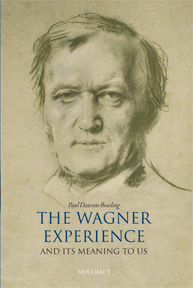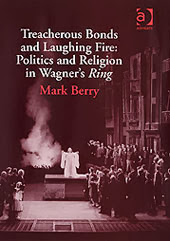 |
| Emily Magee as Salome Salzburg 2011 |
Things have been going from bad to worse for the
Salzburg Easter Festival . First of course, were the
allegations of corruption, fraud, police investigations, resignations, rumored suicide attempts and loss of , in anyone's estimation, a staggering 1.8 million pound.in public funds.
However, despite all of this, the festival seemed certain of retaining it's star attraction:
The Berlin Philharmonic. After all, it was Herbert Von Karajan who founded the festival and it has remained the tradition that the principal conductor of the Berlin Philharmonic becomes the festival's artistic director - a tradition that has remained true up to and including it's present principle conductor Sir Simon Rattle. And, despite everything, this association between the two bodies seemed to remain - despite a sometimes seeming shaky relationship. After all the festival was formed by Karajan to, among other reasons, "showcase" the Philharmonic. Only a
year ago the man brought in to maintain artistic and financial support for the festival (and also long-time friend of Simon Rattle) Peter Alward said that Rattle was "as horrified as anyone else" when he heard of the scandal. "No one had any idea this was going on. However, now … we can put it behind us and concentrate on the future.".He continued: "Ultimately, the sponsors had been "amazingly loyal" and showed no sign of withdrawing support." Equally, in an introduction that remains on the the
Festival website, Eliette von Karajan, had written:
"As the Honorary President of the Salzburg Easter Festival I am very pleased that after the past few turbulent months we can now, together with the wonderful Berlin Philharmonic, Sir Simon Rattle and the new management, take the festival into the modern age."
 |
| Berlin Philharmonic |
However, just a day ago it became apparent that Alward and Karajan were both more confident than they should have been - at least in regards to one certain orchestra - when the Berlin Philharmonic announced that it would be cutting links with the festival at the end of 2012 - after 45 years of association. From 2013 (Wagner's bicentennial of course) it will found a new event with
Baden-Baden’s Festspielhaus.
So why now? According to
Norman Lebrecht, the reason may be that Baden-Baden simply made a better offer and the orchestra voted to take the money. And of Rattle? He was simply not consulted.
A
statement from the Philharmonic said that it had not proven to be an easy decision but that: "
For our opera and concert activities at Easter, we need the kind of long-term security that the Baden-Baden Festspielhaus is able to offer.”
 |
| Baden-Baden’s Festspielhaus |
And the reaction in Salzberg?
"Not fair" says the regional government, who are "surprised and disappointed" by the decision. And the Festival itself? . Peter Alward has
said today that "he couldn't rule out legal action if the orchestra breaches an agreement to play Richard Wagner’s “Parsifal” in 2013" as reported in ORF.
Not only does it seem that things are far from over here, but Parsifal may continue to remain at the center of legal actions - all be it different from those brought by the Wagners against the MET in 1903 - when they lost an injunction stopping them performing a staged performance of Wagner's "
ein Bühnenweihfestspiel". Will, the Salzburg Easter Festival be more successful in it's legal actions? Only time will tell



























